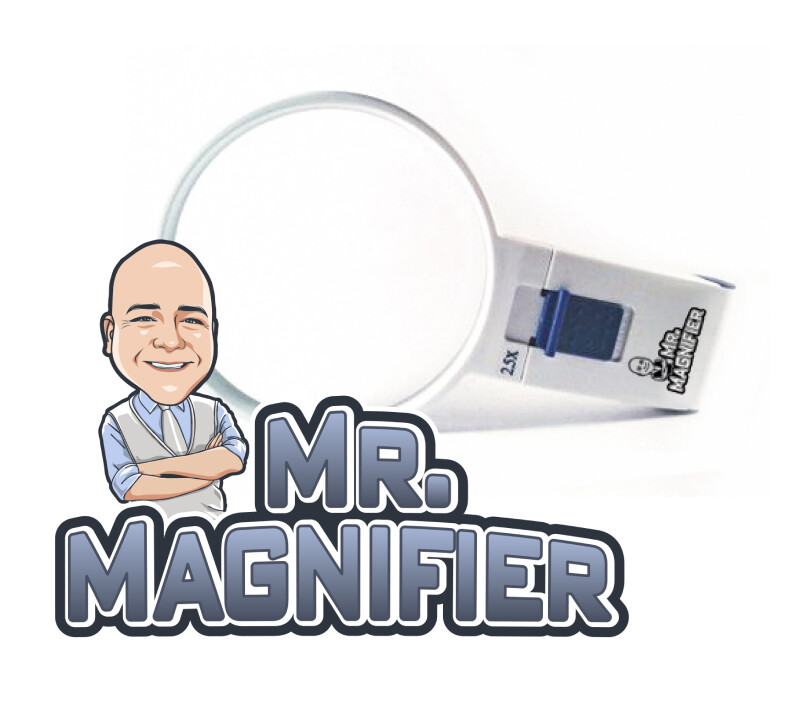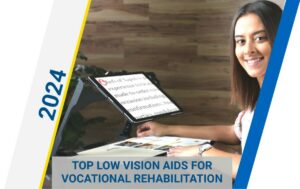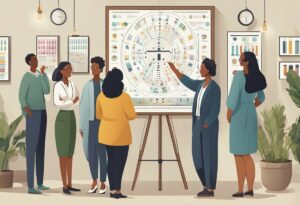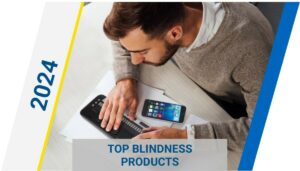February is National AMD and Low Vision Awareness Month – Top 4 Next Steps
February is National AMD and Low Vision Awareness Month
Ok, now what?
You have been diagnosed with Macular Degeneration, and this might be the first time you heard the word Low Vision.
What does all this mean?
Here are our top 4 best next steps:
Step 1 – Educate yourself – One of the best websites describing Age Related Macular Degeneration (AMD) is: https://nei.nih.gov/health/maculardegen
Step 2 – Your Ophthalmologist – Your Ophthalmologist can primarily help you with surgery or injections. If you have the wet form of Macular Degeneration, then listen carefully to what your Ophthalmologist is saying about injections because they can help slow the rate of growth of the degenerative tissue.
Step 3 – Low Vision Optometrist – A Low Vision Optometrist is very unique. A Low Vision Optometrist will likely have hundreds if not thousands of optical tools and suggestions which can help you cope with your low vision. Ask your Ophthalmologist for a referral to a Low Vision Optometrist, or you can do a local google search, or ask someone at your local non-profit agency who serves people with vision loss. Make sure you find a good Low Vision Optometrist, who has access to a broad range of options, and who also works alongside a Low Vision Occupational Therapist.
Step 4 – Low Vision Aids. You will need them. It is a must. You will need to develop your personal toolbox of Low Vision aids, which will be useful for a variety of day to day tasks. If your handheld magnifier is not providing enough magnification or width (field of view) then one of the best aids to look into is an electronic video magnifier, aka (CCTV). These aids are one of the best tools to help you get things done, and remain independent. There are 4 different categories of electronic video magnifiers, 1) HD/OCR, 2) Desktop, 3) 3-in-1 and 4) Portable. They are expensive, but they are well worth the price. Be sure to take it slow and have a personal demonstration by a trusted low vision technology expert.
Lastly, hang in there…be patient, but be persistent. This information is the tip of the ice berg. It will be rough going for a while as you learn to adapt to changes. It might take you a little longer to do things, but there are a lot of people out there like you, remaining employable, independent, active and happy. There are also many Low Vision professionals who are willing to help you along your critical series of next steps.
If we can further help, please let us know.
New England Low Vision and Blindness; info@nelowvision.com




